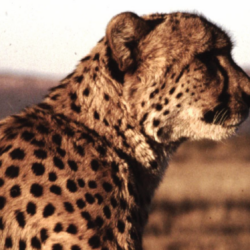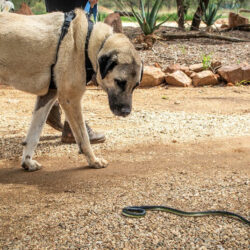Healthy, Happy Dogs Make for Safe, Protected Cheetahs
-

- by Melanie Lippert May 26, 2021
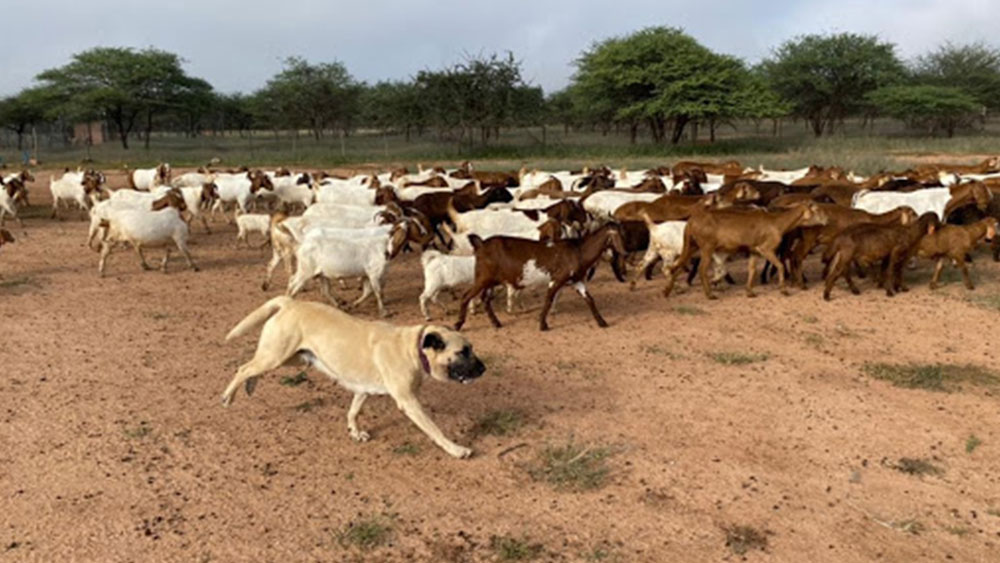
A primary way that the Cheetah Conservation Fund (CCF) has helped protect endangered cheetahs in their natural habitat is by providing local communities, specifically farmers, with feasible, effective solutions for coexisting with this species. One of the greatest examples of this is CCF’s Livestock Guarding Dog (LGD) program. This program was developed in 1994 to help mitigate human-wildlife conflict and provide local farmers with a cost-effective, long-term solution to protect their livestock, which are a major part of their livelihoods, from predator attacks.
A total of 678 livestock guarding dogs have been placed with farmers across Namibia in the 26 years that this program has been running. In 2021 alone, there are currently 153 LGDs working on farms in Namibia.
The basis of this program is the dogs themselves, which is why the dog team here at CCF ensures that each dog has the greatest quality of life and welfare possible.
“The healthier the dog, the better they are at guarding their livestock and protecting wild cheetahs,” Calum O’Flaherty, Livestock Guarding Dog and Small Stock Manager, said.
This year, there are 18 Livestock Guarding Dogs on site at CCF. The staff raising and handling these dogs complete thorough health checks on each dog every day. The LGDs are Anatolian shepherds and Kangal dogs, with half of them acting as breeding dogs and the other half as working dogs. The daily health checks for the working dogs vary slightly to those for the breeding dogs because of the canines’ differing roles.
Working dogs are thoroughly checked before and after they go out with the herds here at CCF. Only one working dog will watch over the herds while they graze each day, but every LGD receives the same daily health check regardless of whether they are working or not. However, it is especially important to carefully check the working dogs because they are more likely to interact with dangerous plants and animals while out in the fields. Anything from sharp warthog tusks and acacia tree thorns to spitting zebra cobras and biting baboons can pose a threat to the Livestock Guarding Dogs.
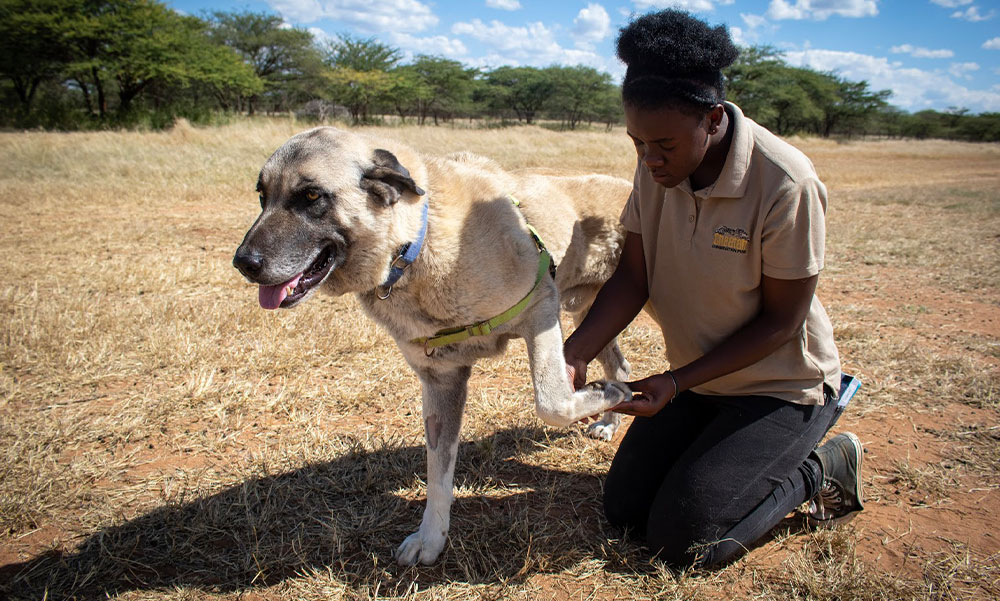
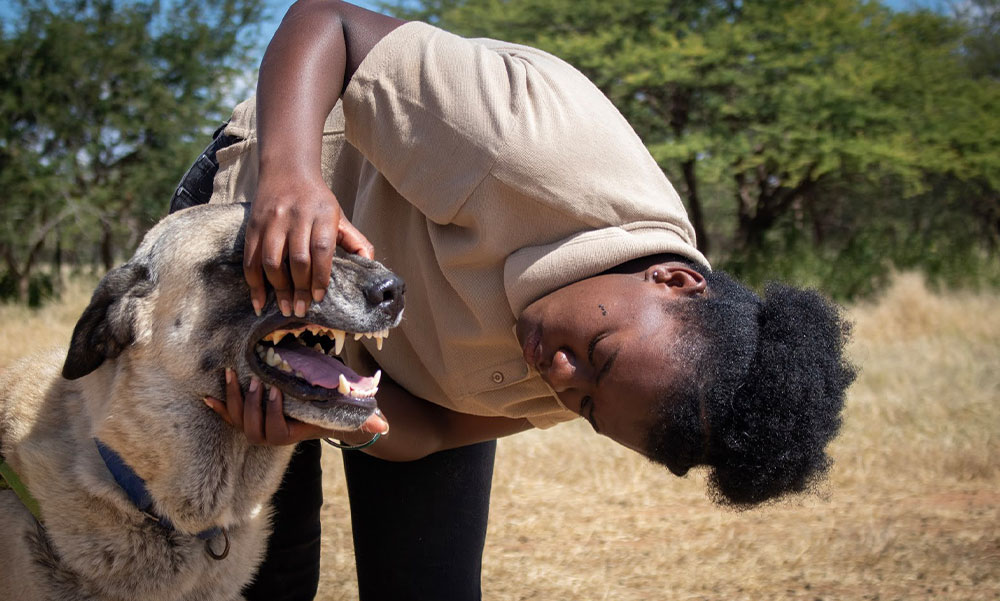
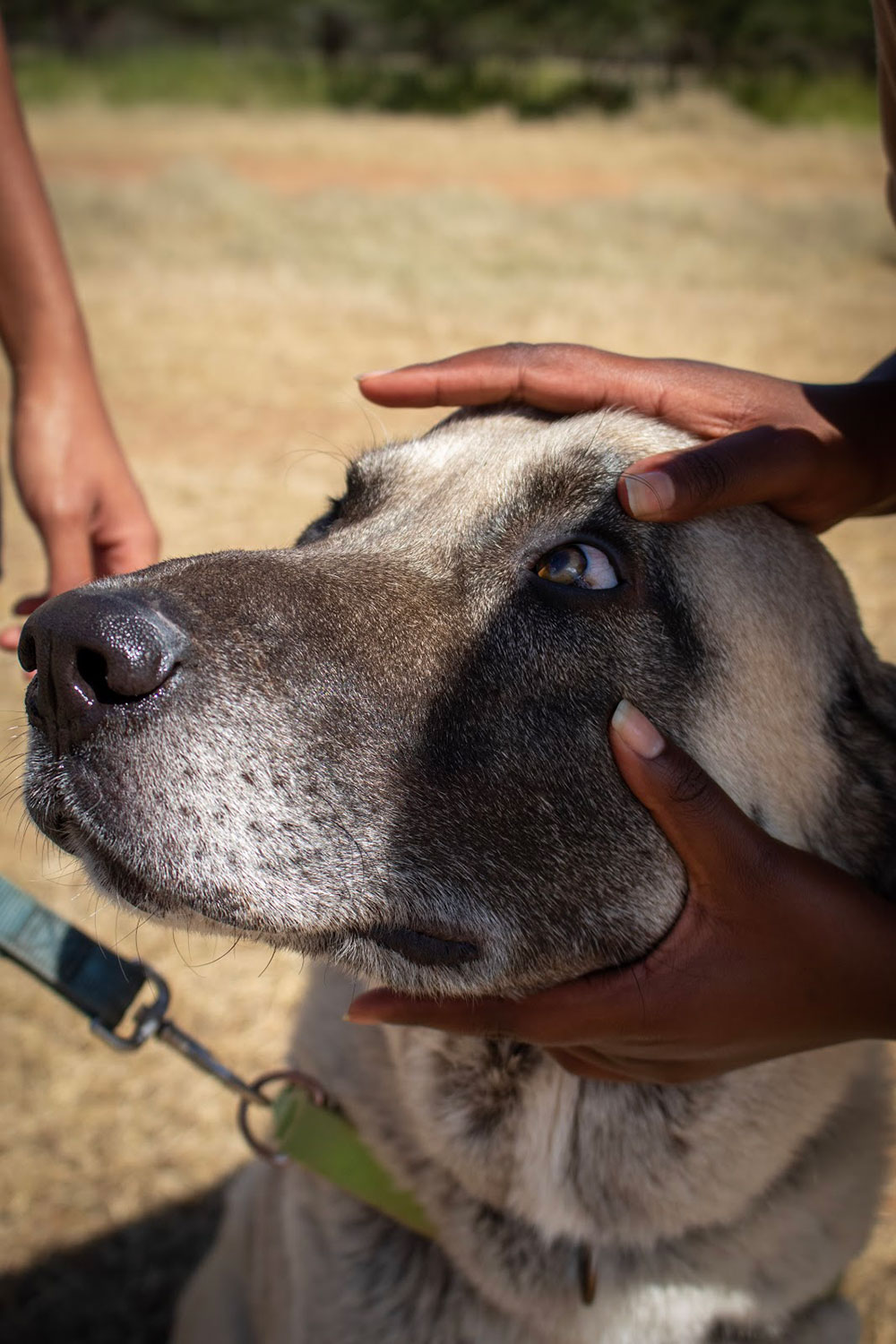
The first component of the daily health checks is a simple behavior check. CCF’s dog team has worked with these animals extensively and thus can notice subtle changes in their behavior. Many animals, including dogs and cheetahs, often try to mask illnesses and injuries, so even a slight change in behavior, such as shifts in energy level, mobility or vocalizations, can be the first sign that something is wrong. The keepers also closely monitor the feeding behavior of each livestock guarding dog—recording how much each dog eats so that there is a long-term log of their food intake. The working and breeding dogs are fed each morning before the herds go out to graze, and the dog team checks during feeding to see if any of the animals are not eating normally, which can also be a sign that there is some underlying health issue. Anatolians tend to have very slow metabolisms, and they can gain weight rapidly. So, recording their daily diets is very important to help monitor whether they are gaining or losing weight too quickly. The keepers also pick up the dogs’ poop each day and examine it to see whether there are signs of health problems, such as parasites or diarrhea. The dog team can even tell what each individual dog’s poop typically looks like, helping them to easily identify if something seems abnormal.
For the final health check, the dogs’ bodies are then examined, starting from the pads of their feet and working up to their head, to confirm that there are no injuries, wounds or lumps. It is important to check each part of the body for different reasons. For example, keepers will carefully scan their teeth because there are many carcasses and bones left by predators and scavengers at CCF, and the dogs can often chip their teeth on those. It is also very important to check their eyes, particularly after returning from the field, because numerous dogs have been spat at in the eyes by zebra cobras, which can cause blindness if not treated immediately. The dogs are closely examined for ticks, and the dog team observes how each animal is moving and walking, as well. Anatolians are particularly susceptible to lameness and arthritis, so monitoring their mobility is vital.
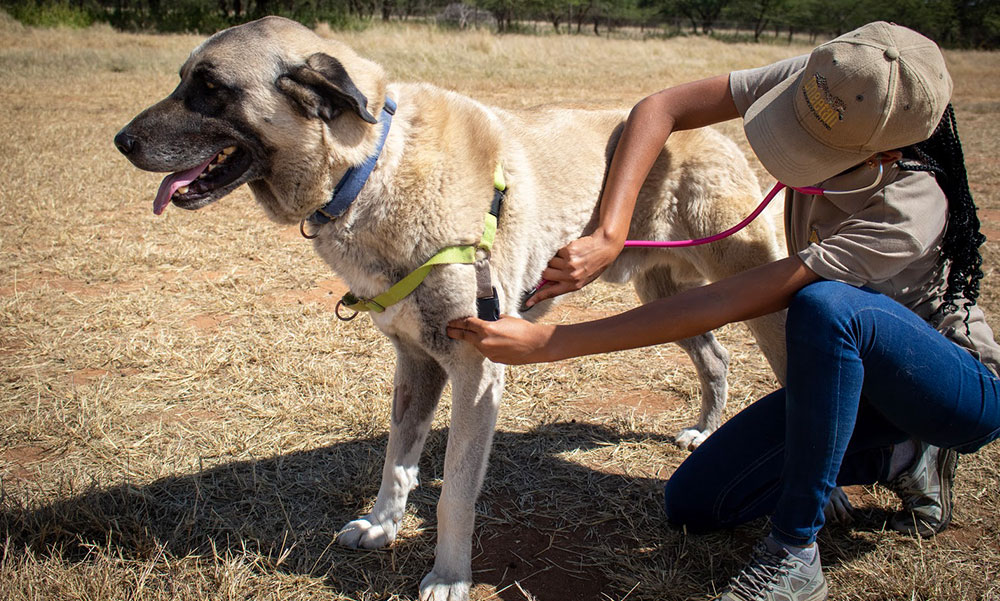
Along with this daily health check routine that is completed for all dogs, the breeding dogs also undergo yearly blood work. With blood work, the dog team can examine the biochemistry and hematology of the breeding males and females to see if internally they are as healthy as they seem on the exterior. For example, the blood work can show if there are high levels of white blood cells, indicating some sort of infection in the body. All breeding dogs will also have hip x-rays done before breeding to ensure that they do not show signs of hip dysplasia. If they do, they cannot be bred because that can be passed down genetically to the offspring and can cause serious complications for a pregnant female. Breeding males will also undergo a yearly sperm analysis to evaluate whether their sperm is viable and moving normally. All dogs, both working and breeding, also receive yearly health exams, where vitals like heart rate and temperature are measured and vaccines and dewormers are administered, as well as yearly dental work.
Examining everything from the dogs’ poop, sperm and diets to overall body condition can help our keepers detect non-clinical signs that something is wrong early on, before the issue escalates. When the working livestock guarding dogs are placed at a farm at 11 weeks old, they are then taken care of by the farmers. But, CCF’s keepers continue to monitor them by completing three-month, six-month and yearly health and welfare checks during the first year to evaluate whether the farmers are able to properly care for the dogs. During these checks, the dog team will conduct the typical health check that is done on all CCF dogs and administer dewormer and vaccines. After one year, the dog team will continue to conduct yearly checks to confirm that the dogs’ health is maintained. CCF staff also trains the farmers and provides them with educational guides so that they can complete these health checks on their own. The dog team hopes to instill in farmers that they can receive the greatest benefit from these dogs by making sure they stay healthy and ready to work. During the monthly and yearly checks, if there are any signs that a livestock guarding dog is mistreated or malnourished, the dog will be confiscated from the farmer and returned to CCF for treatment.
Through providing healthy, happy livestock guarding dogs, CCF is helping to bridge the gap between conservationists and local people and illustrate to farmers that coexisting with wild cheetahs is not only vital for the well-being of all species in their community but also economically feasible. Many of the health and welfare checks completed by the dog team can easily be applied to domestic dogs and pets. Not only is this team ensuring the best quality of life for the dogs, but they are also setting an example for how to monitor captive and domestic species on a daily basis.
Related Reading
-
December 4, 2024
Double Your Donation for the Cheetah -
June 15, 2024
Snake Aversion Training


